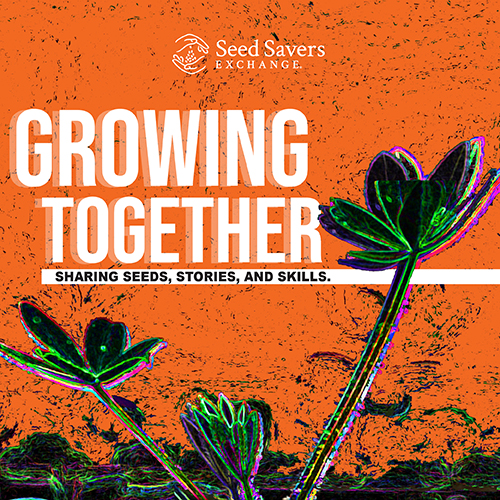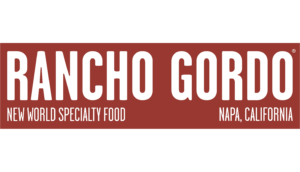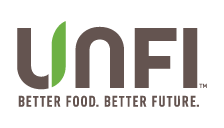44th Annual Seed Savers Exchange Conference
Friday, May 3—Community
Friday June 7—Foodways
Friday, July 12—Plant Breeding
Friday, August 2—Climate
Location: Virtual
In 2024, Seed Savers Exchange’s annual conference will take place over the course of four days in four different months. Join us virtually for inspiring keynote speakers, informational workshops, and a chance to connect with the larger seed community.
By registering you will have access to all four days of programming, and recordings of any sessions you may have missed. There is no need to register for individual days.
Friday, May 3 – All times are listed as Central Time.
10:00 AM: Welcome + Keynote
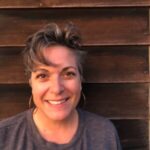
Laura Lewis, executive director, Organic Seed Alliance
Dr. Laura R. Lewis is executive director of the Organic Seed Alliance. Before joining OSA she developed and was director of the Washington State University Food Systems Program. She has her Ph.D. in biogeography with expertise in centers of origin for agrobiodiversity. Her current work is focused on supporting the mission of OSA with particular focus on strengthening organic seed systems across the entire supply chain through utilization and diversification of cropping systems and markets. Prior to coming to WSU, she was assistant professor of biogeography at the University of Maryland, Baltimore County and her research focused on crop evolution in Africa and food access in the city of Baltimore. She is most interested in how organic agrobiodiversity is utilized on farms and within communities to support resilient agroecosystems.
11:30 AM: From Seed to Community

Megy Karydes
All it takes is one tiny tomato seed to help build community. In this presentation, Chicago-based writer Megy Karydes reflects on an enriching gardening journey that began during the COVID-19 pandemic. During the first month of lockdown, she stumbled upon a Facebook group offering seeds to neighbors. Those tiny tomato seeds grew more than two dozen plants, but even more importantly, introduced her to one of the most generous communities of friends and mentors. This session will help those interested in building a stronger community connection with neighbors by sharing seeds, seedlings, garden supplies, and more.
12:15 PM: Growing an Ancestry Garden – Celebrating Your Personal History With Seeds
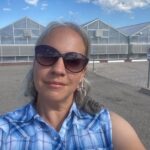
Anita Thompson
An ancestry garden can help gardeners celebrate themselves and their history. This presentation will share tips and techniques to source seed and grow your family history.
1:30 PM: National Seed Swap Day
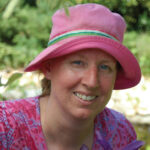
Kathy Jentz
Today National Seed Swap Day—held the last Saturday of January since 2006—is a fixture on the calendars of many gardeners and seed savers. Learn about the origins of this celebration from its founder, Kathy Jentz, who will also provide examples of successful seed swaps and offer expert guidance on how to host an impactful seed-swapping event in your community.
2:30 PM: Using Mutual Aid in Community Seed Network Building
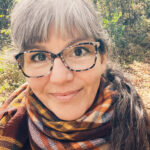
Denise Cusack
Mutual aid systems can work in communities to provide accessible seeds, grow community, and redistribute resources to create gardens in any neighborhood. This session will explore how one seed-grant program created community-based mutual aid models that rely on collaborative networks, not just financial systems, to build local seed systems that help introduce uncommon, culturally relevant seeds important to reclaiming food and medicine.
4:00 PM: From Seeds to STEM: Growing a School Garden Community
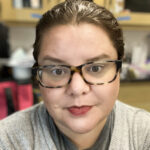
Meghan Hess Shamdasani + Students
The garden program at SouthTech Academy in Florida expanded dramatically from 2020-23—growing from three to more than 50 hydroponic systems and from two to 20 outdoor garden beds that today produce fresh food for more than 600 students. In this session, the teacher and students who developed this interdisciplinary gardening community will explore the key components of its success, including focusing on what students and teachers wanted out of the program and ensuring students were included in the planning process.
5:00 PM: Art Journaling Workshop
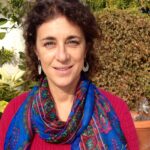
Devon Meyer
Art journaling can help gardeners capture thoughts and observations while looking deeper into the process of growing, harvesting, and preparing food. This session is a hands-on sketching and watercolor-painting class that will help participants learn simple and beautiful techniques to record observations and experiences in the garden, the kitchen, and the community.
6:00 PM: Horticultural Diplomacy: A Community Science and Justice, Diversity, Equity, and Inclusion Demonstration Garden Project
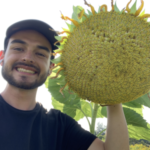
Stephen Stresow
Beyond growing food, gardens can be used to build community and address social issues. This session highlights a statewide vegetable trial garden program that used a “horticultural diplomacy” framework to introduce Master Gardener volunteers to diverse crops and cultures relevant to Latin America and East Asia. Including relevant recipes and bed groupings helped participants build garden skills, contribute to an online database of well-performing varieties across climates, and gain a greater appreciation for other cultures. We outline steps that made this new iteration successful and note areas for improvement.
Friday, June 7 – All times are listed as Central Time.
10:00 AM: Keynote Panel with Bonetta Adeeb, Ira Wallace, and Vivien Sansour
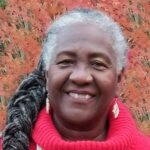
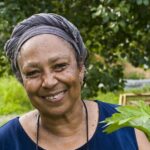
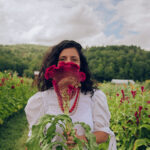
11:30 AM: Tracing the Trail of the Scarlet Runner Bean

Anita Thompson
Scarlet runner beans have graced gardens and fields around the world and are especially well loved in the Southwestern United States for their history, cultural relevance, ease of growth, and colorful seeds and flowers. This session will trace their path from native habitat to current gardens, highlighting their geographic and cultural significance.
12:00 PM: Protecting Heirloom Seeds in Crete, Greece via Education & Outreach
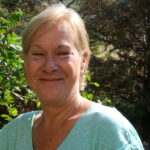
Nikki Rose
Since 1997, Crete’s Culinary Sanctuaries has spread the word about the necessity of preserving our heirloom seeds and supporting organic farmers, which also helps to preserve safe and delicious local food sources. In this session, the organization’s founder will highlight stories of people in Crete, Greece, striving to protect their cultural, natural, and agricultural heritage, which is all at risk. It will include clips of their documentary, Heritage Protectors, that spotlight heirloom seed savers.
1:00 PM: Our Fermented Lives: The Global History of Fermentation
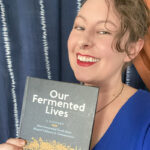
Julia Skinner
Fermentation has influenced our lives and diets in many different ways throughout history. This session by the author of the award-winning book Our Fermented Lives explores fermented foods and their intersection with preserving, health, flavor, and community.
2:30 PM: Costa Rican Heirlooms
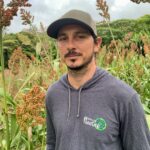
Gabriel Bravo
Costa Rica is well known for its national parks and rich biodiversity. Yet it’s also one of the most heavy pesticide users in the world, with a big agroindustrial influence and worrying genetic erosion. This session will explore the context and important historic, cultural, and culinary aspects of several Costa Rican heirloom varieties; it will also address how a lack of a significant seed-saving culture has made it even more imperative for home gardeners and farmers to rescue and promote these varieties.
4:00 PM: Makoce kin Mitakuye – The Land is my Relative
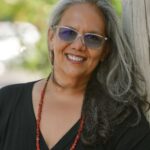
Teresa Peterson, Utuhu Cistinna Win
Join Dakota gardener, writer, and relative, Teresa Peterson on a seasonal journey of gardening, foraging, storing the harvest, and preparing foods. In this session, she’ll explore how this way of life heals both person and place, provides inspiration calling us to to care for and be a good relative to the land that sustains us, and, if time allows, share a story, poem, or recipe from her new book, Perennial Ceremony: Lessons and Gifts from a Dakota Garden.
Friday, July 12 – All times are listed as Central Time.
10:00 AM: Welcome + Keynote
Lane Selman, director, Culinary Breeding Network
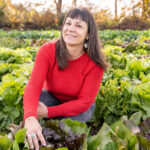
11:30 AM: From Soil to Seed: Unlocking the Secrets of Nutrient-Dense Gardening
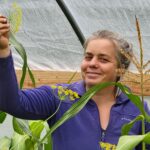
Julia Dakin
Genetics, microbes, and plant stress can greatly impact the nutrient density and flavor of your garden produce. This session offers a deep dive into how gardeners can leverage genetic diversity and soil-microbe interactions to cultivate crops that are not only healthier and tastier but also more resilient. Attendees will gain both the knowledge and the inspiration to apply these concepts in their gardens, ultimately contributing to a healthier, more sustainable approach to food cultivation.
1:00 PM: Early Pillars of Seed Savers Exchange
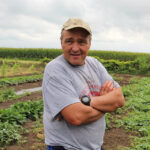
Glenn Drowns
This presentation will offer an overview of some of the first and founding members of Seed Savers Exchange and the diverse material, knowledge, and history these passionate individuals brought to the group.
2:30 PM: Perennial Beans
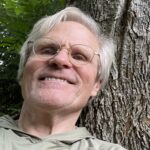
Kenneth Asmus
How can you create more resilient perennial protein crops in a short time period? In this session, the founder of Oikos Tree Crops will draw on research conducted through broad collaboration and collective selection at his nursery and farm to show how to produce, select, and develop perennial beans successfully using thicket and lima beans.
Friday, August 2 – All times are listed as Central Time.
10:00 AM: Keynote Nicolas Enjalbert, CEO and co-founder of SeedLinked
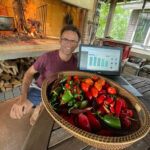
11:30 AM: No-till Principles and Practices: Bridging the gap from the farm to the garden
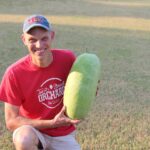
Dr. Jonathan Conrad
Traditional soil tillage increases soil erosion, degrades the soil microbial community, and decreases storage capacity for carbon and water. No-till principles developed for farming can be readily adapted to suit home and market gardens. In this session, you will learn practical ways to improve soil health and carbon storage, reduce tillage and weed pressure, and grow food more easily while combating climate change.
1:00 PM: Confronting Climate Concerns with Indigenous Heritage Cucurbit Varieties
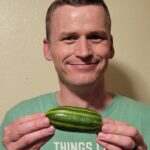
Jay Tracey
Water scarcity and unseasonable temperature fluctuations present real-life concerns for growers on all scales. This session will provide a short history of cucumber-melons, explain their role in traditional Southern Italian agriculture, detail how these heritage varieties have demonstrated climate resilience, and provide ideas on how these varieties can provide more reliable food security for future generations of growers.
1:45 PM: ADAPT – Community Science at Seed Savers Exchange
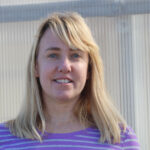
Kate Rowe, Seed Savers Exchange, evaluation manager
2:30 PM: The Exchange – An online gardener-to-gardener seed swap
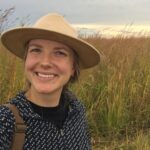
Josie Flatgard, Seed Savers Exchange, exchange coordinator
3:30 PM: Membership Garden Party with the Membership team
Cindy Goodner, Abe Mendez, and Abigail Lofte
